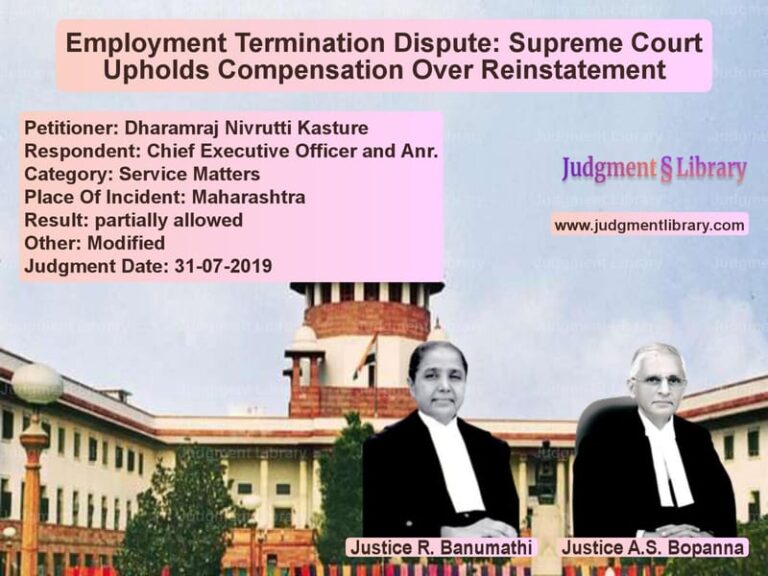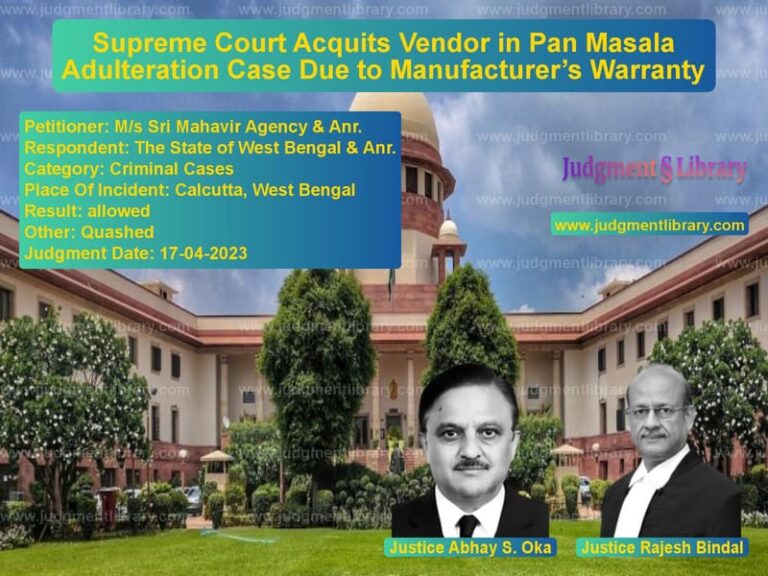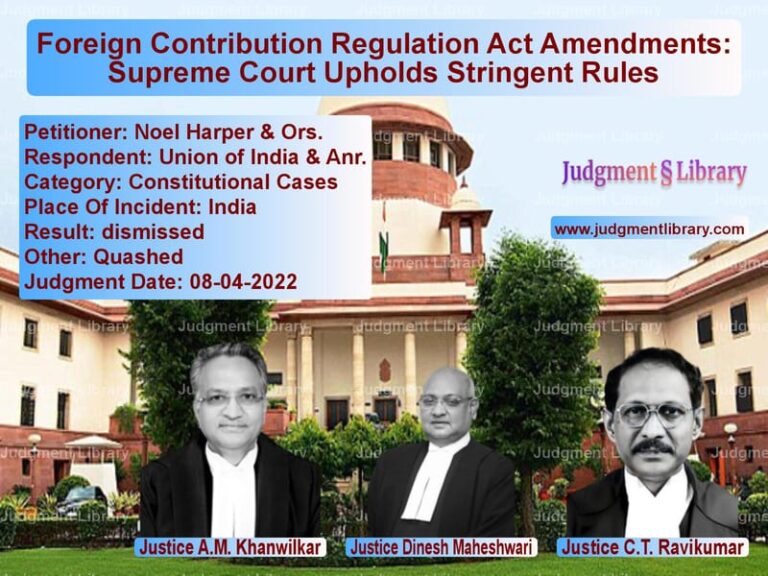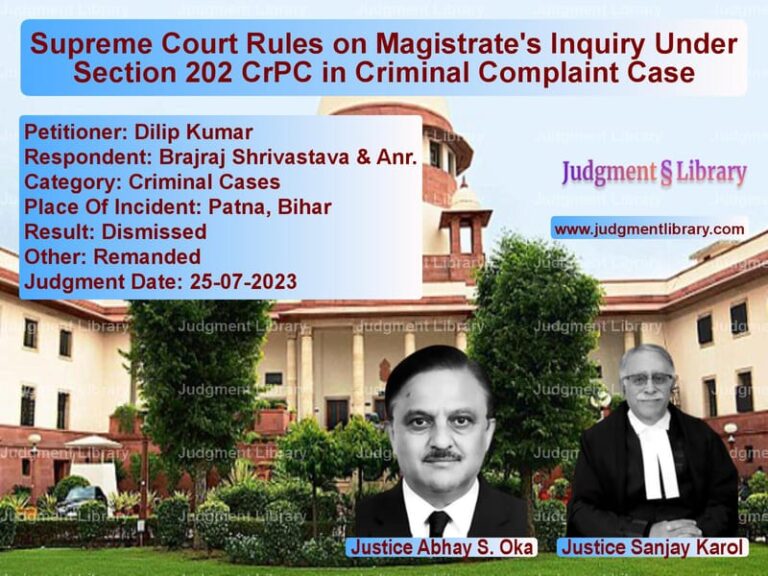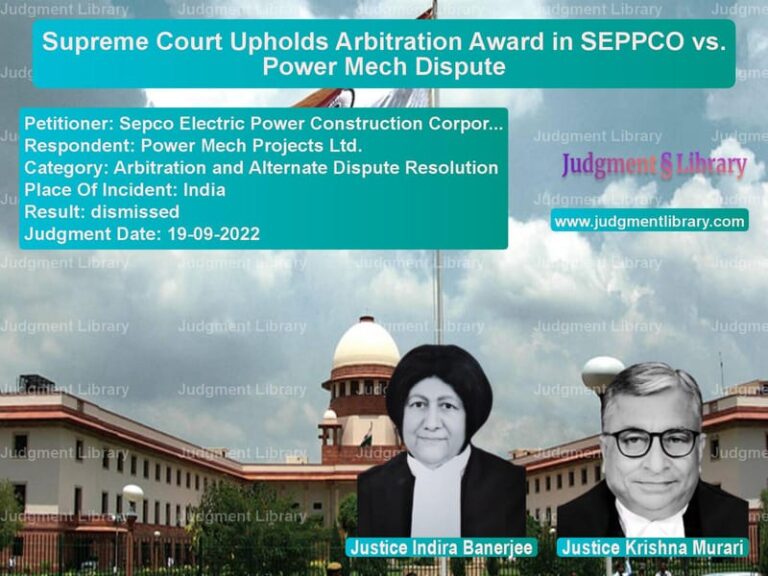Airline Resignation Rules and Employee Rights: Supreme Court’s Verdict
The case of Air India Express Ltd. and Others vs. Capt. Gurdarshan Kaur Sandhu revolved around the legal implications of an employee’s resignation and whether it could be withdrawn before it took effect. The Supreme Court’s decision provides a crucial interpretation of employment contracts, particularly for airline pilots.
The core issue in this case was whether the respondent, a pilot employed by Air India Express Ltd., had the right to withdraw her resignation before the notice period ended. The airline argued that her resignation had been accepted and that they had taken necessary steps to train a replacement, making her withdrawal invalid.
Background of the Case
The respondent, Capt. Gurdarshan Kaur Sandhu, was employed as a pilot with Air India Express Ltd. She tendered her resignation via email on July 3, 2017, indicating that she was serving the required six-month notice period.
However, on September 2, 2017, the airline accepted her resignation. Later, on December 18, 2017, she sent another email withdrawing her resignation, but the airline refused to acknowledge it. The respondent then filed a writ petition, which was initially ruled in her favor by the Kerala High Court. However, the airline challenged this decision in the Supreme Court.
Legal Issues Considered
- Can an employee withdraw a resignation before the expiry of the notice period?
- Does the Civil Aviation Requirement (CAR) provide any special provisions that restrict pilots from withdrawing their resignation?
- Was the resignation already effective when the pilot attempted to withdraw it?
Petitioner’s Arguments (Air India Express Ltd.)
The petitioners argued that:
- The resignation had already been accepted by the airline on September 2, 2017, making it effective from January 2, 2018.
- The airline had incurred a significant expense in training a replacement pilot, and allowing the respondent to withdraw her resignation would cause financial and operational difficulties.
- The Civil Aviation Requirement (CAR) mandates a six-month notice period for pilots to ensure smooth airline operations and prevent sudden disruptions.
Respondent’s Arguments (Capt. Gurdarshan Kaur Sandhu)
The respondent contended that:
- She had the legal right to withdraw her resignation before it took effect, as it was a prospective resignation.
- The airline had not issued a No Objection Certificate (NOC) as required under the CAR, meaning that the resignation was not finalized.
- The principles established in previous Supreme Court rulings support the right of an employee to withdraw a resignation before its effective date.
Supreme Court’s Observations
The Supreme Court analyzed past judgments and legal principles concerning resignations and concluded that:
- Ordinarily, an employee has the right to withdraw a resignation before it becomes effective.
- However, in this case, the CAR sets special provisions for airline pilots due to the critical nature of their roles.
- The CAR explicitly states that a resignation without a six-month notice period would disrupt airline operations and is against public interest.
- The airline had already taken necessary steps to train a replacement pilot, which meant the resignation had led to consequential actions that could not be reversed.
Final Verdict
The Supreme Court ruled in favor of Air India Express Ltd., holding that the respondent’s resignation was effective and could not be withdrawn. The Court reasoned that the CAR created a special category of employment rules, making it an exception to the general principle that a resignation can be withdrawn before taking effect.
The Court stated:
“The normal principle that an employee can at any time before the resignation becomes effective, withdraw his resignation will therefore be subject to the core principles of the CAR. The instant matter would, therefore, be within the exception stipulated in the ruling of Gopal Chandra Misra and Balram Gupta, and the respondent could not have withdrawn the resignation.”
Impact of the Judgment
This ruling reinforces that employment laws may be subject to industry-specific regulations that override general legal principles. For professionals in critical roles, such as pilots, specialized guidelines like the CAR ensure operational stability and prevent sudden disruptions.
For employers, this judgment affirms that resignation policies, if properly drafted in employment contracts and industry regulations, can provide protection against last-minute withdrawals by employees. For employees, it serves as a reminder that once a resignation is formally accepted and acted upon, withdrawal may not always be an option.
Petitioner Name: Air India Express Ltd. and Others.Respondent Name: Capt. Gurdarshan Kaur Sandhu.Judgment By: Justice Uday Umesh Lalit, Justice Vineet Saran.Place Of Incident: Kerala.Judgment Date: 22-08-2019.
Don’t miss out on the full details! Download the complete judgment in PDF format below and gain valuable insights instantly!
Download Judgment: Air India Express Lt vs Capt. Gurdarshan Kau Supreme Court of India Judgment Dated 22-08-2019.pdf
Direct Downlaod Judgment: Direct downlaod this Judgment
See all petitions in Employment Disputes
See all petitions in Termination Cases
See all petitions in Public Sector Employees
See all petitions in Judgment by Uday Umesh Lalit
See all petitions in Judgment by Vineet Saran
See all petitions in allowed
See all petitions in supreme court of India judgments August 2019
See all petitions in 2019 judgments
See all posts in Service Matters Category
See all allowed petitions in Service Matters Category
See all Dismissed petitions in Service Matters Category
See all partially allowed petitions in Service Matters Category


